Reimagining Graduate Education
How the Jefferson Scholars Foundation and UVA are mapping out a new landscape of graduate support
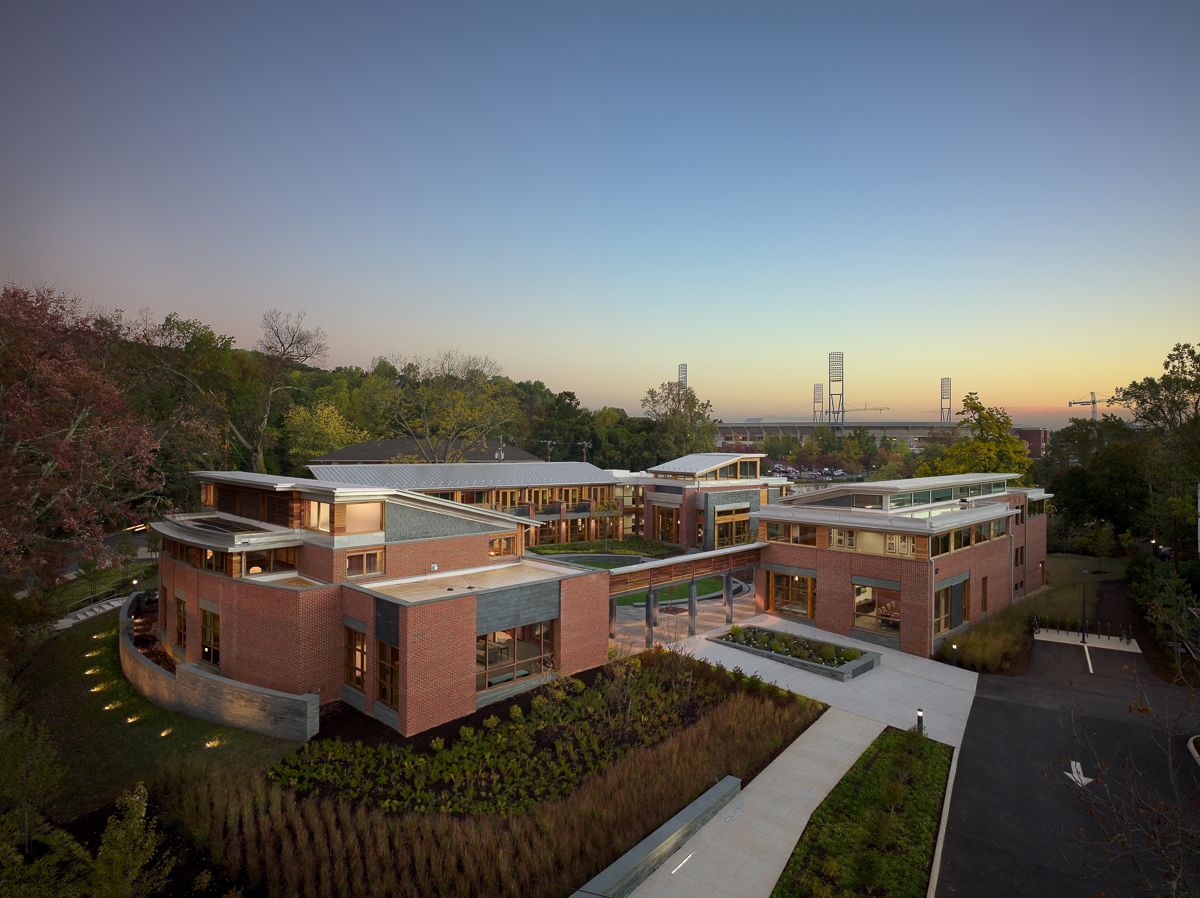
In the hallowed halls of academia, where intellectual inquiry sparks an exchange of new ideas and perspectives, graduate education stands as a cornerstone of progress. Behind the scholarly pursuit of field-shaping research, however, lies an often-unseen reality. High attrition rates, rising costs of tuition and living expenses, pressure to balance teaching and research, and lack of tenure-track jobs form a complex web of challenges that beset many aspiring Ph.D. candidates.
For some universities, graduate education reform has been a top-of-mind issue for years. For others, the push to implement change was brought on more recently as a result of the COVID-19 pandemic. At least one school in the mix finds itself with an ace up its sleeve.
Tucked away in a quiet corner of Charlottesville, Virginia, an otherwise bustling college town and home to the University of Virginia, sits the Jefferson Scholars Foundation, an independent organization whose 32,700 square-foot facility serves as sort of an academic oasis.
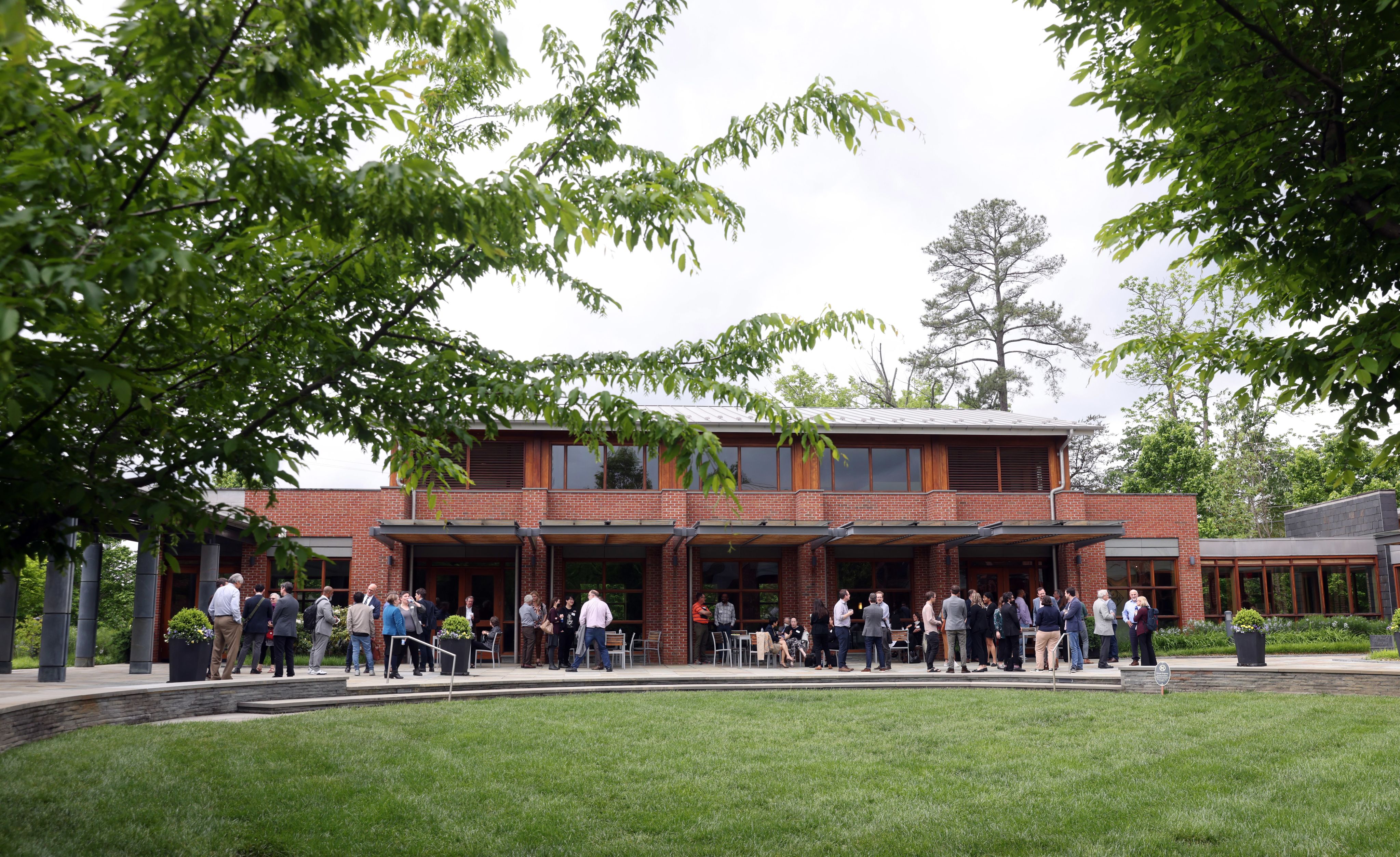
The Foundation’s building serves as a vibrant, interdisciplinary hub where graduate students convene daily.
The Foundation’s building serves as a vibrant, interdisciplinary hub where graduate students convene daily.
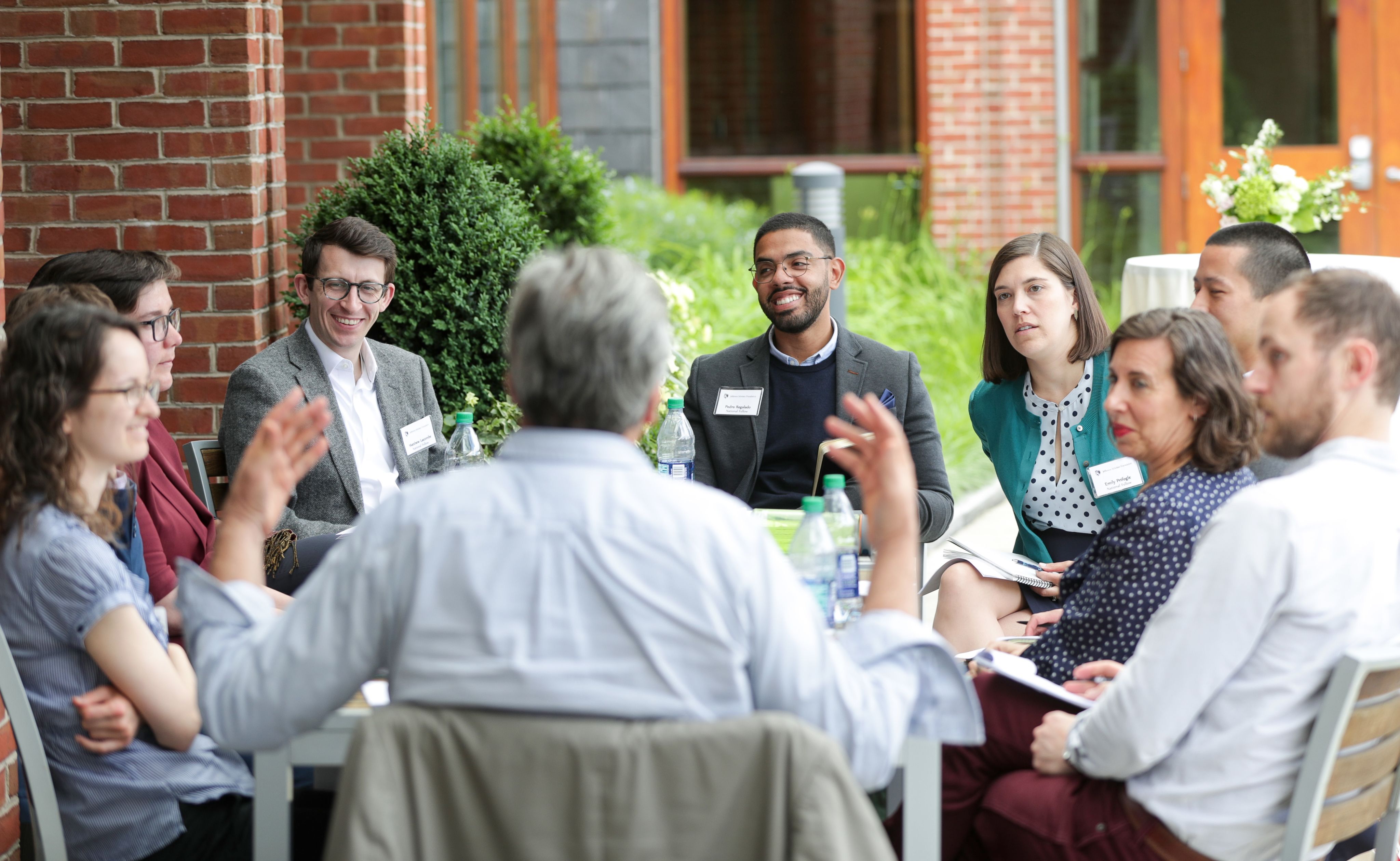
Fellows are encouraged to gather at the Foundation to discuss their research and exchange ideas.
Over more than four decades, the Jefferson Scholars Foundation has earned a reputation for attracting to the University of Virginia some of the world’s most promising leaders, scholars, and citizens. The Foundation has accomplished this most notably through the undergraduate scholarship for which it is named. More than 1,000 outstanding high school students across the globe have chosen to attend UVA after being awarded a Jefferson Scholarship—and still thousands more have chosen to attend UVA after simply competing for the prestigious merit award.
“The recruiting impact of the Foundation is undeniable,” says Jimmy Wright, the Foundation’s president.
“Every year, anywhere from eight to 10 percent of the incoming first-year class at UVA is a Jefferson Scholar nominee. This year, it was 11 percent—or more than 400 students,” says Wright.
Not surprisingly, many of the graduate schools at UVA have taken note over the years of the recruiting powerhouse in their own backyard. The first to do so was the Graduate School of Arts & Sciences.
In 1998, then-dean of the school, Mel Leffler, approached the Foundation with a proposition. Leffler and other administrators felt that UVA was losing top Ph.D. prospects to peer institutions and asked the Foundation for assistance in helping to reverse the trend. At the time, the best fellowship package offered by the University was $12,000 for three years, while many peer institutions were offering up to $16,000 for five years.
“The Foundation’s role, if we were to accept the dean’s proposal,” Wright says, “would be to underwrite a competitive financial package, which of course would require a substantial fundraising effort. We also would need to devise and administer the selection process.”
It was a big ask. But the idea of forming a new merit graduate fellowship at UVA was compelling.
“The Foundation’s Board of Directors ultimately came to see it as a natural extension of the Foundation’s mission. So, after some consideration, we agreed to help,” says Wright.
In fairly short order, the Foundation was able to secure approximately $6 million—enough to launch the new Fellowship. In 2001, three years after the dean’s request, the inaugural cohort of Jefferson Fellows matriculated at the University, and the Foundation officially ventured into the world of graduate support.
By 2006, UVA’s Darden School of Business also approached the Foundation with a request to partner. And in 2012, the Graduate School of Engineering & Applied Science followed suit.
Ben Skipper, who has led the Jefferson Fellowship Program for the last decade as the Foundation’s director of graduate and undergraduate programs, says, “We quickly discovered that success in the graduate arena, especially across three schools, but most especially in the Graduate School of Arts & Sciences, would require a willingness to think creatively and strategically about how we operate. A ‘one size fits all’ approach was not going to work.”

Fellows are encouraged to gather at the Foundation to discuss their research and exchange ideas.
Fellows are encouraged to gather at the Foundation to discuss their research and exchange ideas.
The Jefferson Fellowship for students in the arts and sciences was initially devised as a three-year and later a five-year package awarded at the point of admission. Candidates were nominated by department chairs and invited to make a 15-minute presentation and interview with a panel of UVA alumni and faculty. Those awarded the Fellowship received tuition, health insurance, and a living stipend that started at $16,900 in 2001 and gradually increased to $30,000 by 2007. They also received a research stipend ranging from $3,000 to $7,500.
These multi-year packages allowed the Graduate School of Arts & Sciences to compete with offers from peer institutions and rapidly elevate the quality of its incoming graduate cohort—the number one priority of the school at the time.
Recognizing the value of a competitive financial package, the University eventually made graduate funding a priority and increased its own standard package for incoming graduate students. In doing so, the Jefferson Fellowship, in its original format, no longer provided the same competitive draw. Driven by both market forces and the changing needs of the University, the Foundation, in close partnership with school administration, reconfigured the Fellowship for the first time in 2016 and continued to fine-tune it over the ensuing years.
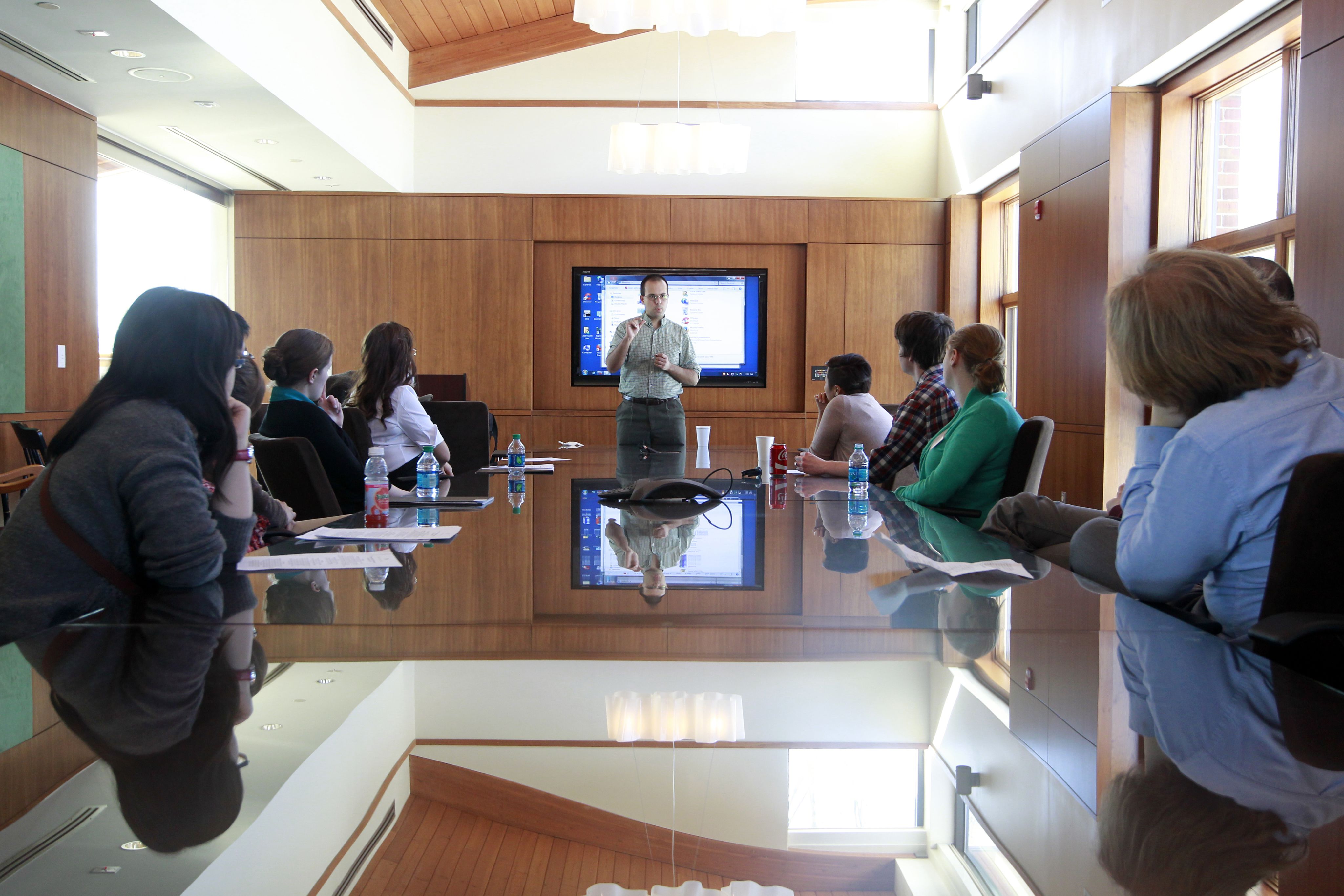
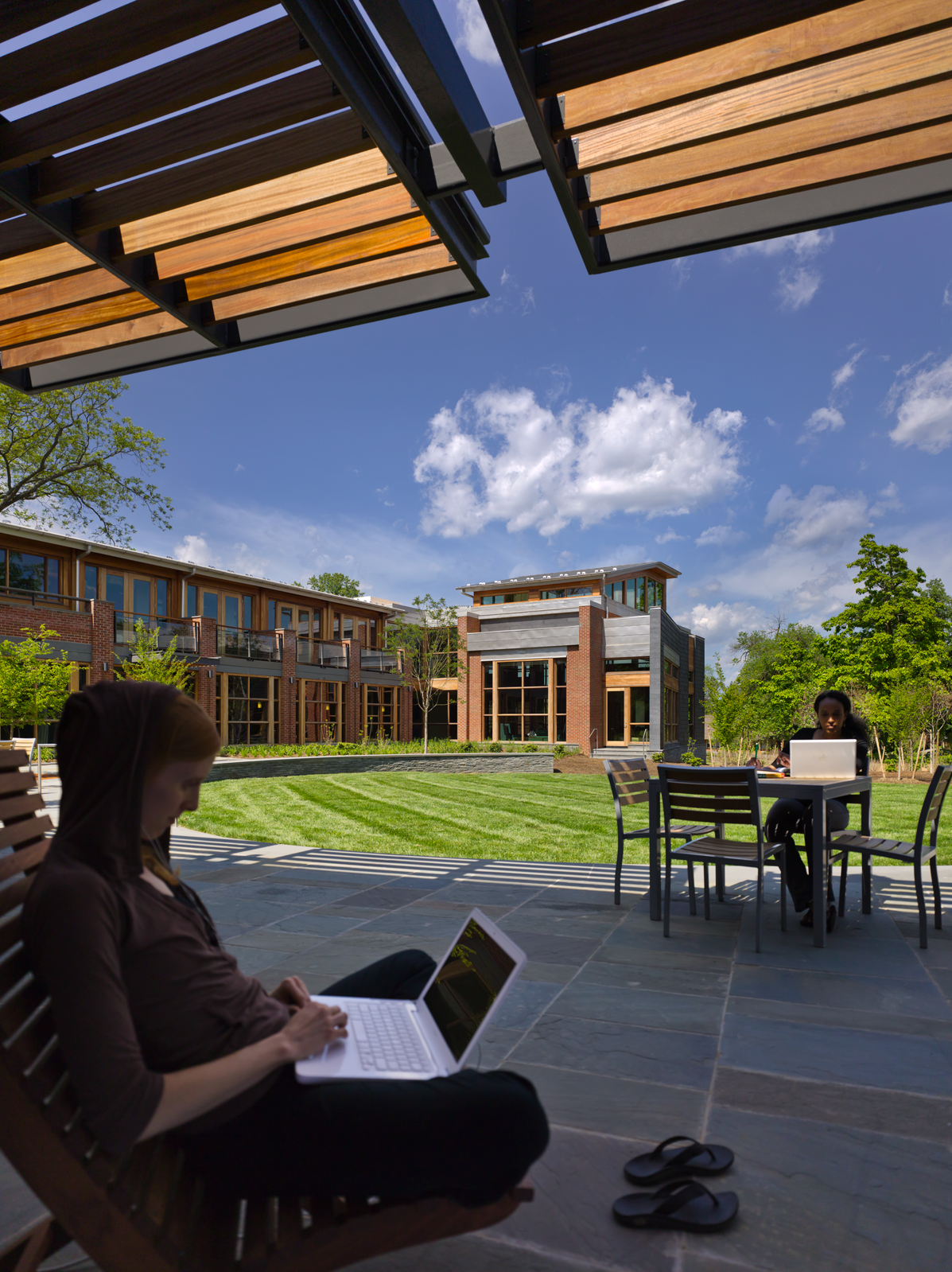
The Foundation provides an ideal space for Fellows to study and conduct independent research.
Today, the Jefferson Fellowship addresses a different set of issues than it did in 2001, providing much-needed dissertation completion and postdoctoral support. Current fifth-year Ph.D. candidates at UVA can apply for the Fellowship, and, just as in the early years, they must make a 15-minute presentation followed by an interview as part of the selection process. Recipients are relieved of their departmental teaching requirements in the first year to ensure they have time to complete ambitious dissertations. In year two, they are given the opportunity to design their own courses and gain independent teaching experience.
“The new format gives students the resources and, perhaps the most important commodity of all, the time to finish strong and prepare to enter the job market as competitive candidates,” says Skipper.
Skipper, who oversaw many of the Fellowship’s iterations, believes the Foundation’s adaptability and willingness to restructure the Fellowship package is the very thing that has made the Jefferson Fellowship something of a secret weapon for UVA.
China Scherz, an associate dean in the Graduate School of Arts & Sciences, agrees. “Today, many students find themselves at the end of their program needing just one more year to get it done. That’s often precisely when they are left hanging, with no options for financial assistance. But the new format of the Jefferson Fellowship ensures that they can finish strong,” she says.
Scherz adds that as important as financial support is, it is far from the only benefit of the Fellowship. One feature that has defined the Fellowship since the early-2000’s is the fact that Fellows have access to—and in fact become an integral part of—the Foundation community.
“Graduate students don’t typically have a platform to interact with scholars outside their department, and writing a dissertation is particularly isolating work. Jefferson Fellows don’t have that problem,” says Scherz.
The Foundation’s building was designed to serve as a vibrant, interdisciplinary hub where Fellows could convene daily. The building’s crown jewel, the Fellows Center, is equipped with state-of-the-art teaching and conference rooms, a reading room, a multi-purpose event hall, and informal communal spaces. Most notably, it features more than 20 offices that Fellows are invited to utilize if needed.
“We quickly discovered that success in the graduate arena, especially across three schools, but most especially in the Graduate School of Arts & Sciences, would require a willingness to think creatively and strategically about how we operate. A ‘one size fits all’ approach was not going to work.”

The Foundation provides an ideal space for Fellows to study and conduct independent research.
The Foundation provides an ideal space for Fellows to study and conduct independent research.
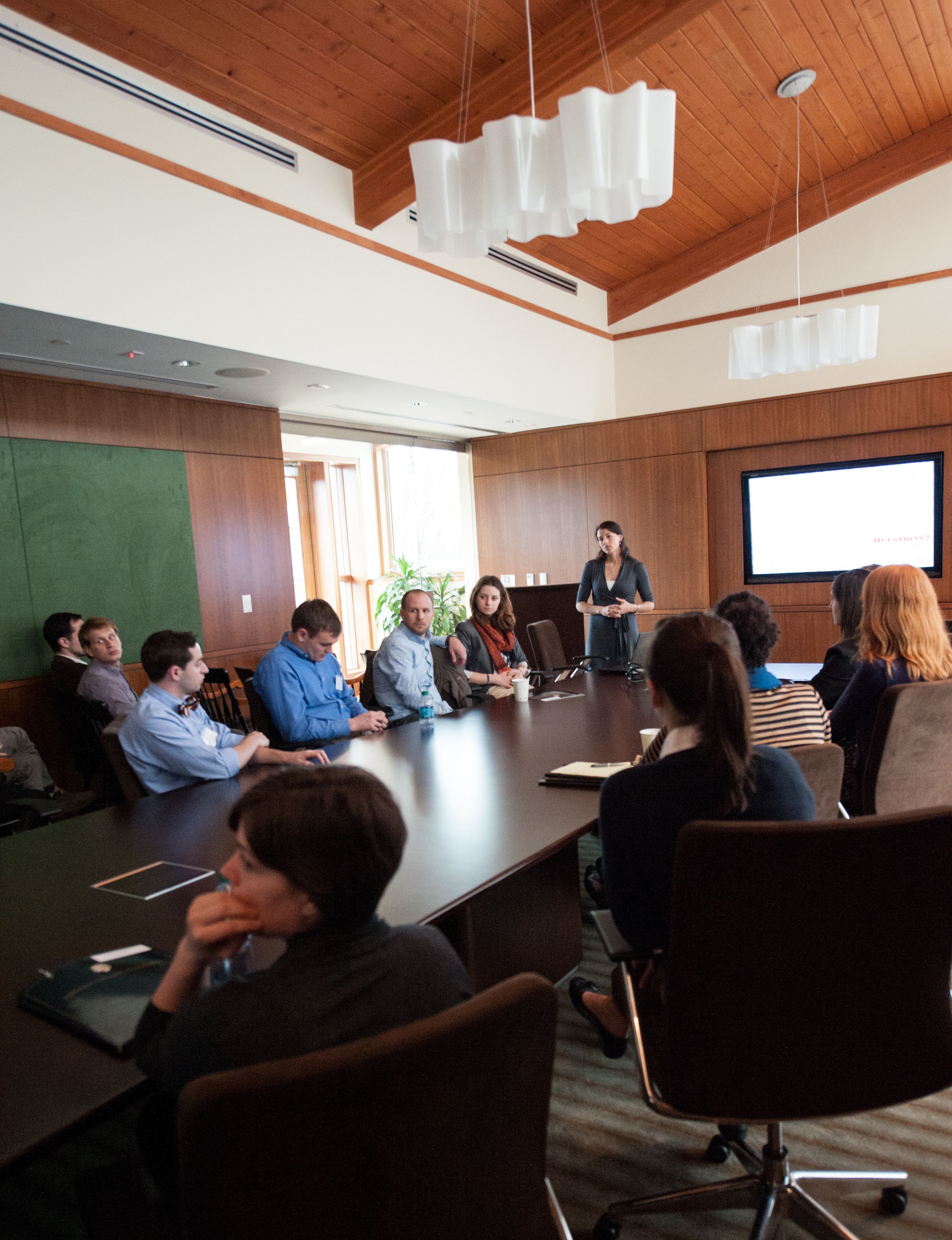
Fellows prepare and deliver academic talks as part of an ongoing symposia at the Foundation.
Fellows prepare and deliver academic talks as part of an ongoing symposia at the Foundation.

Fellows prepare and deliver academic talks as part of an ongoing symposia at the Foundation.
Kathryn Babineau, a current Jefferson Fellow in sociology whose research examines labor rights, temporary migration, and public and private regulation, says one of the best parts about the Fellowship is working alongside historians, economists, and environmental scientists who help her reframe questions and expand the scope of her research.
Last fall, Babineau was one of the Fellows selected to receive funding to organize the Forum for Interdisciplinary Dialogue, an annual conference held at the Foundation that brings together scholars across a wide range of fields and universities to address a selected topic of social or cultural significance.
“I was able to pick the theme and presenters. It was amazing to have scholars fly in from all over the world, engaging in conversations related to my research. It was an incredible networking opportunity and great experience to go through the process of planning and organizing a major academic conference,” says Babineau.
The Foundation also gives Fellows the opportunity to edit and manage an academic journal if they wish, as well as prepare and deliver academic talks as part of its ongoing symposia.
“The Jefferson Fellowship has come a long way over the last two decades, and we are confident that we are supporting these exceptionally talented graduate students exactly the way they need to be supported right now,” says Wright.
When pressed if he would make the same decision today that he made in 2001, Wright responds, “Every major programmatic decision we have made has been designed to help the University meet a pressing need and to further the Foundation’s mission of attracting exceptionally talented people to Grounds.”
For those lucky enough to call themselves Jefferson Fellows, the path ahead is encouraging, despite the strong headwinds facing graduate education.
This content was paid for and created by Jefferson Scholars Foundation. The editorial staff of The Chronicle had no role in its preparation. Find out more about paid content.



